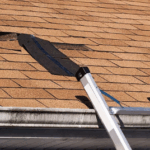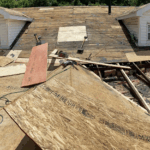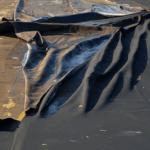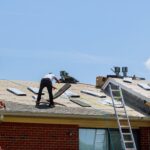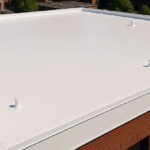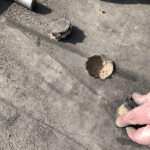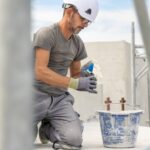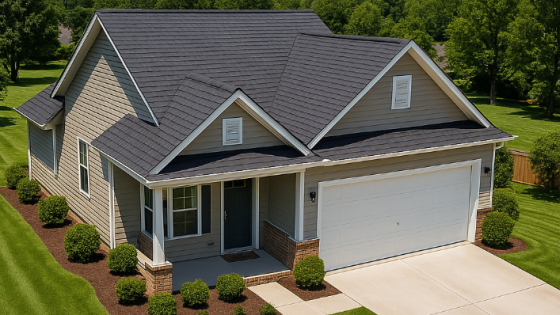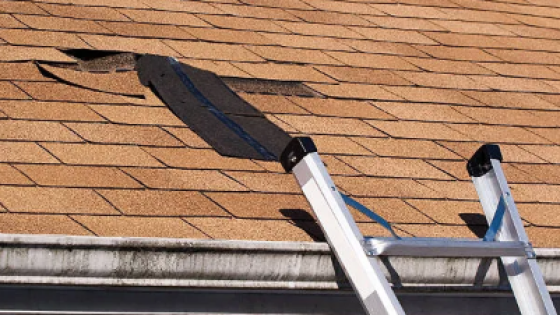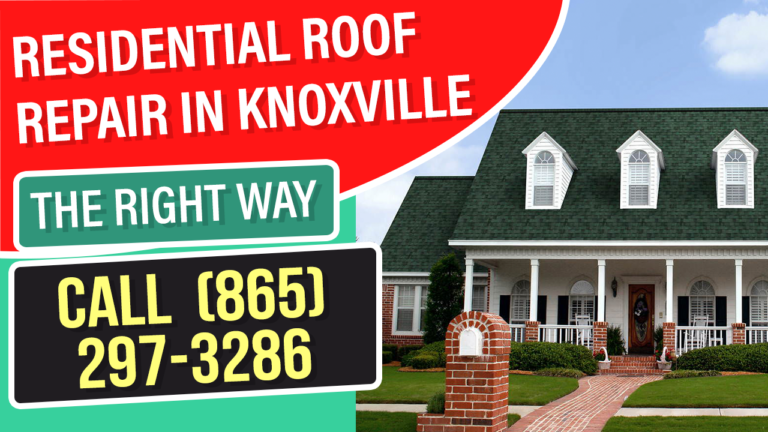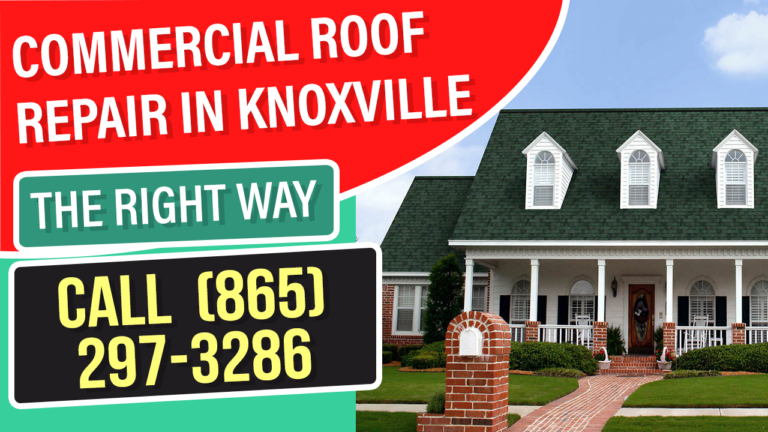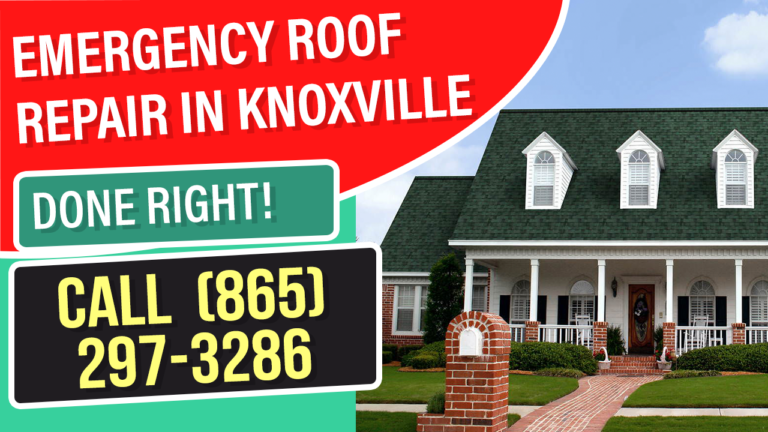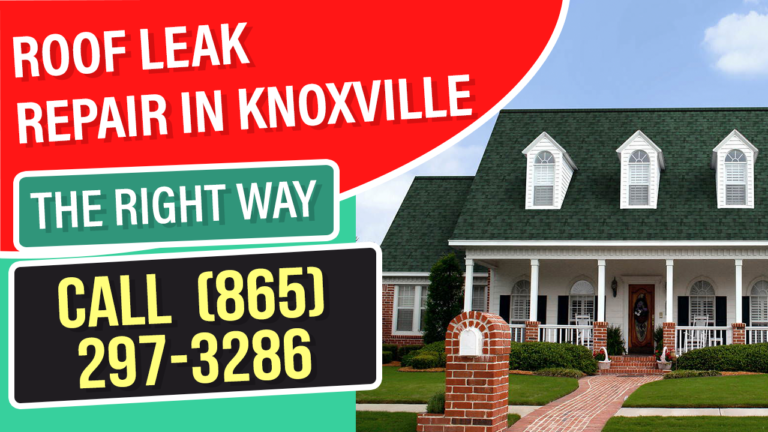Building a porch roof can seem like a great DIY project to boost your home’s curb appeal and functionality. With the popularity of DIY home improvement surging—fueled by social media, YouTube tutorials, and rising labor costs—many homeowners are asking: Can I install a porch roof myself, or should I hire a roofing contractor?
Litespeed Construction, a Knoxville, TN-based roofing company with years of experience in residential roofing, weighs in on this critical question to help homeowners make informed, safe, and cost-effective decisions.
Whether you’re planning a small awning-style roof or a full wrap-around porch, the stakes are high. Improper construction can lead to leaks, structural instability, or even code violations. Let’s explore the pros and cons of DIY porch roof building vs. professional installation.
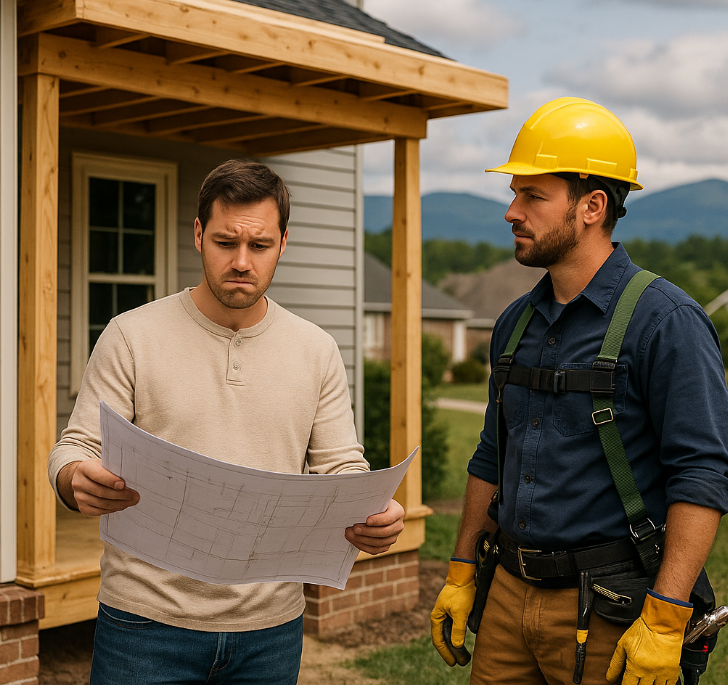
Key Takeaways
💡Tennessee requires permits for most porch roof structures.
💡DIY Saves Money Upfront, But Risks Are High.
💡Hiring a Roofing Contractor Ensures Longevity.
💡Contractors may offer warranties and liability coverage.
Understanding Porch Roof Installations
A porch roof serves as both a structural and aesthetic element of your home. It must support weight, resist wind, shed rain, and integrate seamlessly into your home’s existing roofline.
| Roof Type | Description | Complexity Level | Common Materials |
|---|---|---|---|
| Shed Roof | Simple slope away from the house | Low | Asphalt shingles, metal |
| Gable Roof | Triangular pitch connecting to house | Medium | Shingles, wood, metal |
| Hip Roof | Sloped on all sides, more elegant but complex | High | Metal, tile, shingles |
| Flat Roof | Low pitch, requires excellent drainage | Medium to High | Rubber (EPDM), torch down |
Legal Considerations in Tennessee
Before starting any porch roof project in Knoxville or surrounding areas, you need to be aware of building codes and permit requirements.
According to the Tennessee Department of Commerce & Insurance, porch additions require a building permit and must comply with local zoning laws (source). Building without a permit can result in:
- Fines up to $500/day
- Forced removal of unpermitted structures
- Denial of future home sales until corrected
- Hiring a roofing contractor ensures these legal boxes are checked.
Safety Risks of DIY Roofing
According to the U.S. Bureau of Labor Statistics, roofing is consistently among the top 5 most dangerous occupations, with over 5,000 annual fall-related injuries reported in residential construction.
DIY Safety Risks:
- Falls from ladders or roofs
- Structural miscalculations causing collapse
- Power tool misuse
- Electrical contact during roof attachment

Homeowners insurance may not cover injuries during unlicensed DIY roofing work. Professional contractors carry workers’ comp and liability insurance to shield you from lawsuits or financial burdens.
Financial Analysis: DIY vs. Hiring a Roofing Contractor
Let’s break down the average costs of DIY vs. professional porch roof installation.
| Expense Category | DIY | Hire a Roofing Contractor |
|---|---|---|
| Materials | $1,500 – $3,500 | $1,800 – $3,800 (included) |
| Tools & Equipment Rental | $300 – $600 | Included in quote |
| Permit & Inspection Fees | $150 – $400 | Managed by contractor |
| Labor | Free (your time) | $2,000 – $5,000 |
| Mistake/Repair Contingency | $500 – $2,000 | Minimal (covered under warranty) |
| Total Estimated Cost | $2,450 – $6,500 | $3,800 – $8,800 |
Note: DIY projects rarely factor in the cost of mistakes, structural fixes, or delayed timelines. A licensed contractor like Litespeed Construction includes post-project clean-up, warranties, and long-term value.
Why Homeowners Trust Roofing Contractors Like Litespeed Construction
Litespeed Construction has become a household name in Knoxville, TN, by delivering:
- Expert knowledge of local building codes
- Skilled labor with years of roofing experience
- Insurance and warranty protection
- Transparent pricing and free estimates
- Quality assurance and timely completion
- Hiring a roofing contractor builds long-term trust and keeps your home safe and up to code.
Pros and Cons: DIY vs. Hiring a Roofing Contractor
| Factor | DIY Installation | Hire a Roofing Contractor |
|---|---|---|
| Cost | Lower upfront | Higher upfront but fewer long-term issues |
| Time Required | 3–7 days (if experienced) | 1–3 days (professional crew) |
| Legal Compliance | Must research and file yourself | Contractor manages all permits and inspections |
| Quality & Durability | Depends on skill level | Guaranteed with licensed contractor |
| Safety | High risk | Low risk—professionals have safety training |
| Warranty | None or limited | Typically 5–10 years depending on service |
FAQs about Porch Roof Installation
Yes. A building permit is required for structural additions per the City of Knoxville codes.
Technically yes, but it carries safety, legal, and long-term structural risks.
DIY: 3–7 days. Professionals: 1–3 days, depending on weather and design complexity.
Upfront, yes. But long-term repairs and lack of warranties can increase overall costs.
Circular saw, framing nailer, roofing nail gun, ladders, safety harness, chalk line, tape measure.
For porch roofs, between $3,800 – $8,800 depending on size and materials.
Yes. Professionally built structures increase curb appeal and appraisal value.
Not unless the materials themselves come with a manufacturer’s warranty—labor won’t be covered.
Yes, reputable contractors like Litespeed Construction manage all paperwork and inspections.
Absolutely. They are fully licensed, insured, and BBB-accredited in Knoxville, TN.
Final Thoughts
If you’re handy, experienced with construction, and understand building codes, you might successfully install a porch roof. But for most homeowners, especially in Tennessee where permits and weather conditions are crucial, the safest and smartest choice is to hire a roofing contractor.
Litespeed Construction offers the peace of mind, quality, and protection you need to get the job done right. With years of service in Knoxville, they’re your go-to partner for porch roof installations that are beautiful, durable, and fully code-compliant.




